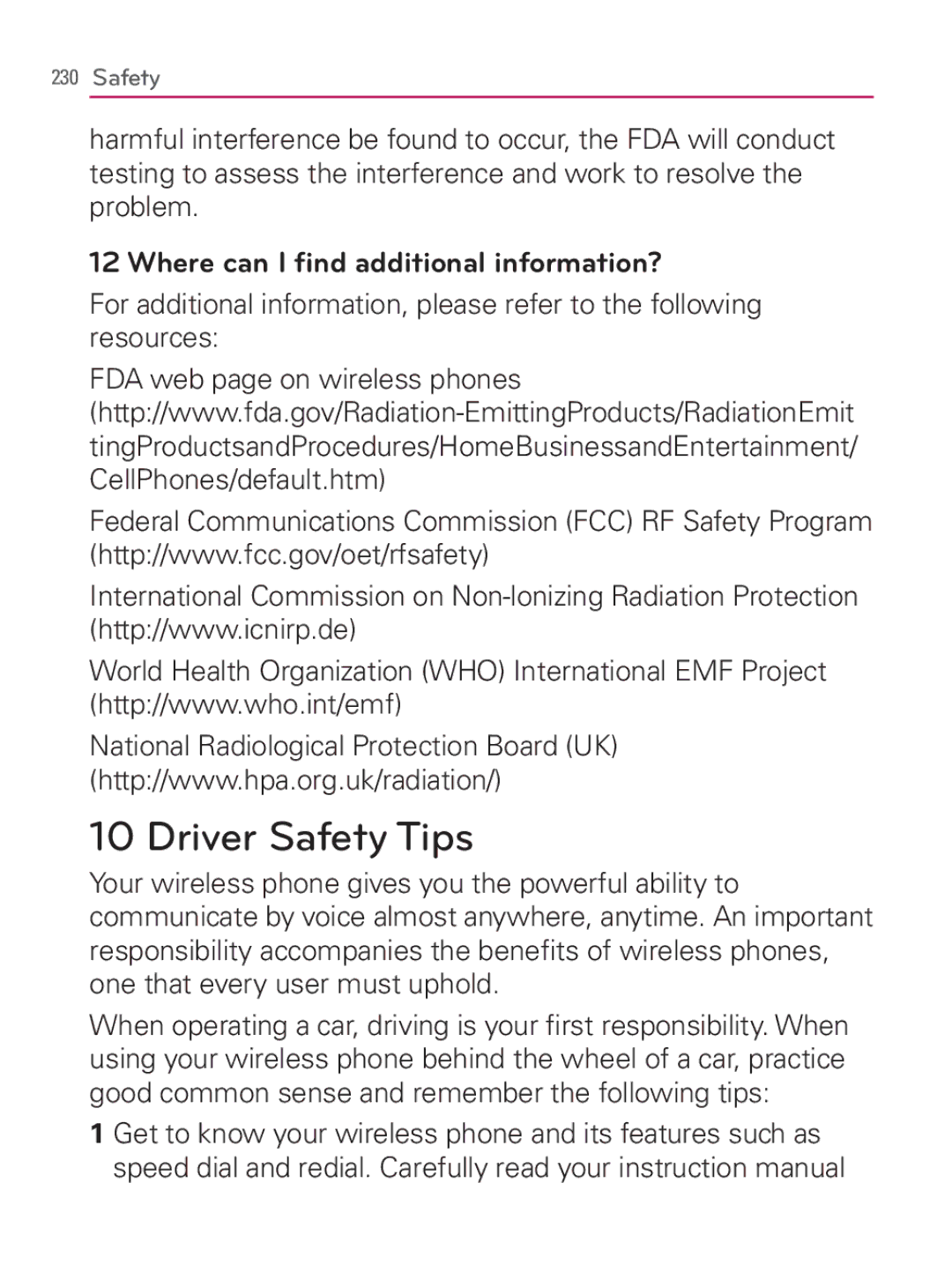230Safety
harmful interference be found to occur, the FDA will conduct testing to assess the interference and work to resolve the problem.
12 Where can I find additional information?
For additional information, please refer to the following resources:
FDA web page on wireless phones
Federal Communications Commission (FCC) RF Safety Program (http://www.fcc.gov/oet/rfsafety)
International Commission on
World Health Organization (WHO) International EMF Project (http://www.who.int/emf)
National Radiological Protection Board (UK) (http://www.hpa.org.uk/radiation/)
10 Driver Safety Tips
Your wireless phone gives you the powerful ability to communicate by voice almost anywhere, anytime. An important responsibility accompanies the benefits of wireless phones, one that every user must uphold.
When operating a car, driving is your first responsibility. When using your wireless phone behind the wheel of a car, practice good common sense and remember the following tips:
1 Get to know your wireless phone and its features such as speed dial and redial. Carefully read your instruction manual
